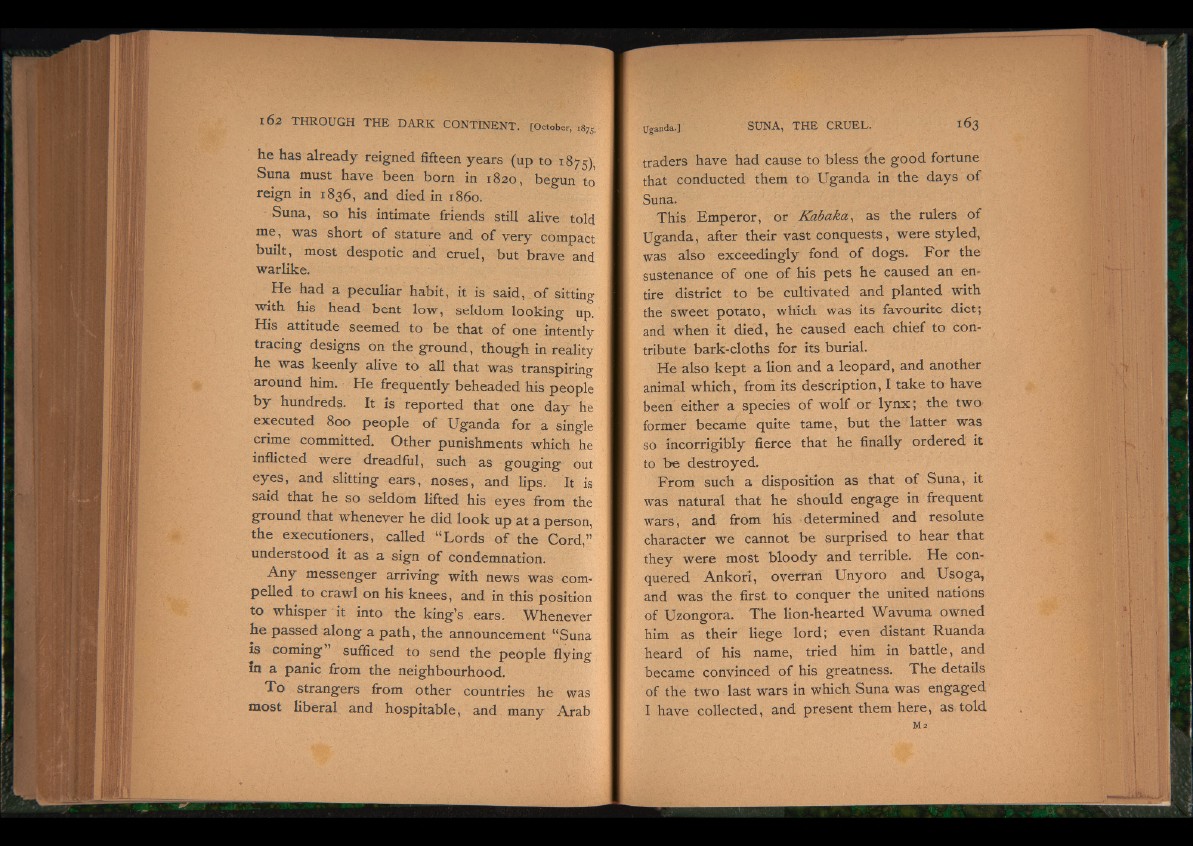
he has already reigned fifteen years (up to 1875),
Suna must have been born in 1820, begun to
reign in 1836, and died in i860.
Suna, so his intimate friends still alive told
me> was short o f stature and o f ve ry compact
built, most despotic and cruel, but brave and
warlike.
He had a peculiar habit, it is said, o f sitting
with his head bent low , seldom looking up.
His attitude seemed to be that o f one intently
tracing designs on the ground, though in reality
he was keenly alive to all that was transpiring
around him. He frequently beheaded his people
b y hundreds. It is reported that one d ay he
executed 800 people o f Uganda for a single
crime committed. Other punishments which he
inflicted were dreadful, such as gou g ing out
e y e s , and slitting ears, noses, and lips. It is
said that he so seldom lifted his eyes from the
ground that whenever he did lo o k up at a person,
the executioners, called “ Lords o f the Cord,”
understood it as a sign o f condemnation.
A n y messenger arriving with news was compelled
to crawl on his knees, and in this position
to whisper it into the king’s ears. Whenever
he passed along a p a th , the announcement “Suna
is coming sufficed to send the people flying
in a. panic from the neighbourhood.
T o strangers from other countries he was
most liberal and hospitable, and many Arab
traders have had cause to bless the go od fortune
that conducted them to Uganda in the days o f
Suna.
This Emperor, or Kabaka, as the rulers o f
Uganda, after their vast conquests, were styled,
was also exceedingly fond o f dogs. F o r the
sustenance o f one o f his pets he caused an entire
district to be cultivated and planted with
the sweet potato, which was its favourite diet;
and when it died, he caused each chief to contribute
bark-cloths for its burial.
He also kep t a lion and a leopard, and another
animal which, from its description, I take to have
been either a species o f w o lf or lyn x ; the two
former became quite tame, but the latter was
so incorrigibly fierce that he finally ordered it
to be destroyed.
From such a disposition as that o f Suna, it
was natural that he should engage in frequent
wars, and. from his ■ determined and resolute
character we cannot be surprised to hear that
they were most b lo od y and terrible. He conquered
Ankori, overran Unyoro and Usoga,
and was the first to conquer the united nations
o f Uzongora. The lion-hearted Wavuma owned
him as their liege lord; even distant Ruanda
heard o f his name, tried him in battle, and
became convinced o f his greatness. T h e details
o f the two last wars in which Suna was engaged
I have collected, and present them here, as told